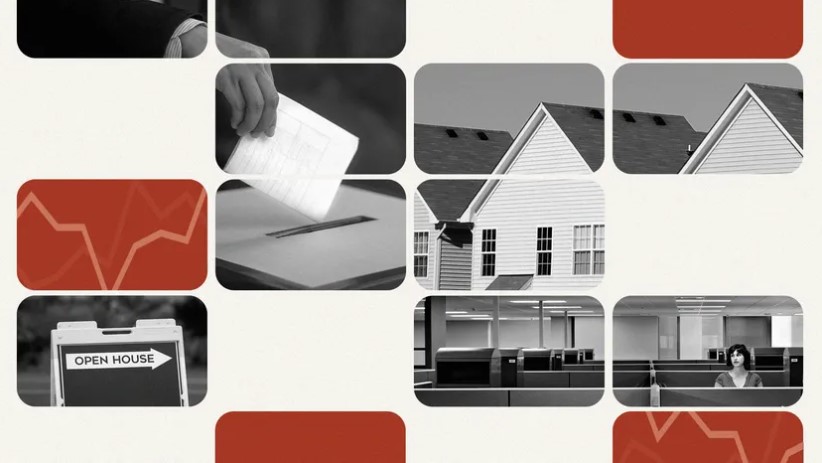Published by REALTOR.com | February 13, 2024
Could the presidential election stall home sales?
This year has barely begun, and it already seems destined for the history books. The next 11 months are jam-packed with a combative presidential election, two large wars abroad, a string of high-profile companies announcing layoffs, and fears over whether the U.S. Federal Reserve will be able to guide the U.S. economy to a soft landing.
How each of these concerns plays out this year will ultimately affect the fate of the housing market, which had largely been frozen last year due to high home prices and mortgage rates. Buying or selling a home is one of the largest financial transactions most people will ever make. If they are worried about the future, they might prefer to opt out of the housing market and stay put instead.
“In 2024, the only thing that is certain is uncertainty itself,” says Yelena Maleyev, a senior economist at KPMG. “Uncertainty slows the economy. It can slow or stop investment decisions or hinder consumer spending.”
It isn’t just buyer and seller psychology in play. What happens with the economy will influence which direction mortgage rates move next.
If rates go down, closing on a home might become a whole lot more affordable—if buyers still have jobs to fund these purchases. If rates rise, however, then the market could remain stuck in limbo.
“There are some concerns about what’s ahead,” says Realtor.com® Chief Economist Danielle Hale. “But these things don’t play out quickly.”
Could the presidential election stall home sales?
One of the most anticipated—or dreaded—events of this year is the U.S. presidential election.
It’s increasingly looking like there will be another showdown between President Joe Biden and former President Trump in November, although the Republican nominee hasn’t been decided just yet. But no matter who becomes the nation’s 47th president, the impact of the election will extend far beyond politics.
The possibility of a new administration with new policies and all of the anxiety that brings can cause some would-be buyers and sellers to hit the pause button, regardless of which party ticket they prefer.
But the election is typically more of a brief blip than something that causes lasting damage.
“Usually, home sales are unchanged compared to a non-election year with the exception being November. In an election year, November is slower than normal,” says Ali Wolf, chief economist of building consultancy Zonda.
By December, the market has usually returned to normal, she says.
As big of a deal as deciding who will lead America will be, a presidential election isn’t always the biggest thing going on in a year.
“Americans, I have no doubt, will pay a lot of attention to the election even if they’d rather watch anything else,” says Hale. “But that doesn’t mean it’s going to be the dominant factor in the economy.”
Take 2008, the year that Barack Obama was elected president. That was the same year that the housing market melted down, foreclosures swept the nation, and scores of builders went out of business.
Then there was 2020, when the COVID-19 pandemic erupted. Initially, the housing market stalled but then picked up quickly as those stuck inside wanted larger homes and yards at the same time that mortgage rates dropped to record lows. Those larger homes were suddenly more affordable thanks to the lower rates.
“There’s a lot going on. A lot of those things could have contradictory impacts on not just the housing market, but the broader economy,” says Jacob Channel, LendingTree’s senior economist. “Where we sit right now, there are encouraging signs. … [But] there are no guarantees.”


